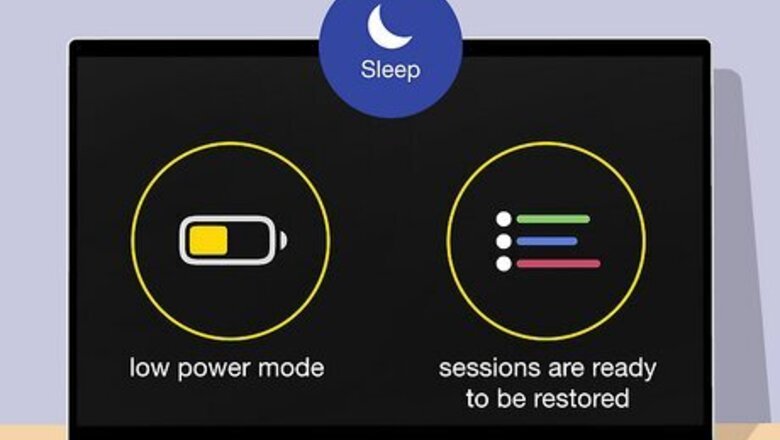
views
What "Sleep" Does on Windows
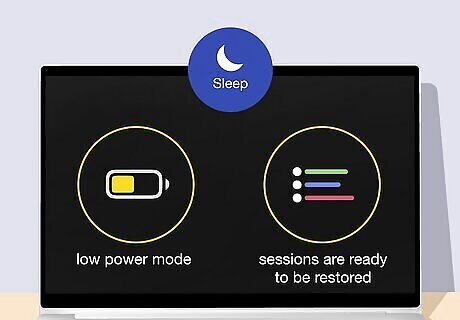
Sleep puts your computer in low power mode until you return. When you tell your computer to Sleep, it might look like the computer is turning off because the monitor goes dark, but your computer actually stays on—it just goes into a low power mode. Much of the computer's functions will turn off when it goes to Sleep, but the computer itself stays active, and your session is ready to be restored as soon as you come back to your PC. When you wake your computer from Sleep, your session will load up quickly because the computer has stayed on the whole time. Most computers and laptops are initially set up to Sleep when you press the power button or close the lid. If you let your computer sleep for a long period of time, there is a chance it could shut down if it starts to overheat during Sleep. If you're going to be gone from your computer for a long time (such as a few hours or overnight), it's best to put it into Hibernate mode.
What "Hibernate" Does on Windows
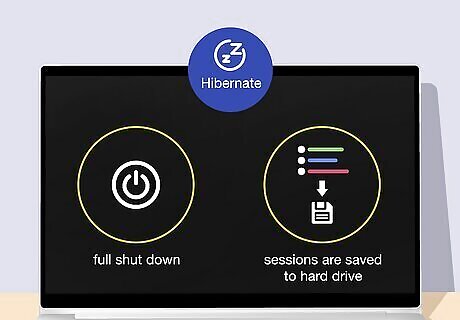
Hibernate shuts down your PC, but saves your session to disk. When you tell your computer to Hibernate, the computer fully shuts down, but it saves a copy of your session to its memory. When you wake the computer up from hibernation, the computer will start up, then load the saved copy of your session to restore the programs you had open. When waking from hibernation, your computer will load more slowly than if you put it to Sleep, since it has to fully turn back on and load the saved session. Hibernate was made specifically for laptops, so if you have a desktop, you may not see this option. If you are only stepping away from your computer for a short period of time, Sleep might be a better option, as your computer will start up much faster from Sleep than Hibernation.
Should I use Sleep or Hibernate?
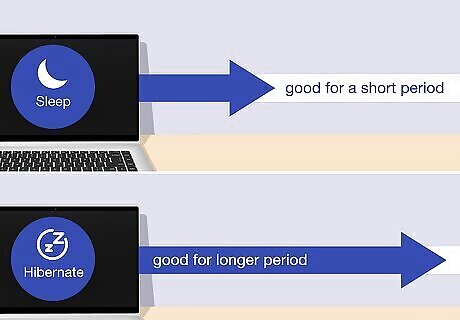
Length of time away from your computer The biggest thing to think about when deciding to use Sleep or Hibernation is how long you'll be away from your computer. If you'll only be gone for a few hours, Sleep is usually sufficient. However, if you plan on stepping away from your computer for many hours (such as overnight), you might want to choose Hibernate. If you have a desktop, you might not be able to choose Hibernate. If you don't have this option, you'll have to choose either Sleep or shutting the computer down entirely. If you have a laptop, picking Hibernate when you'll be away from your computer for a long time is a good idea, as your computer could overheat if you put it in Sleep mode for too long.
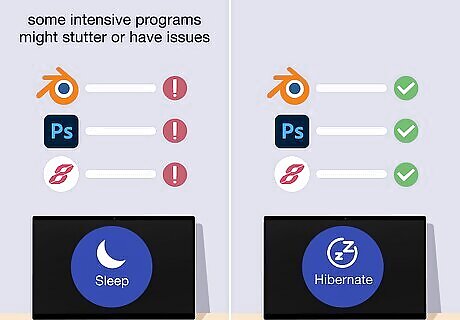
What programs are open on your computer The programs you have open on your computer may dictate whether you should use Sleep or Hibernate. Truthfully, most programs are okay whether you choose one or the other, but some intensive programs, such as photo editing software, video editing software, 3D modeling software, or some video games, might stutter or have issues when waking up from Sleep versus Hibernate. That being said, some programs may not like starting up from Hibernate mode, either. If you try Sleep and it doesn't seem to work for your programs, switch to using Hibernate.
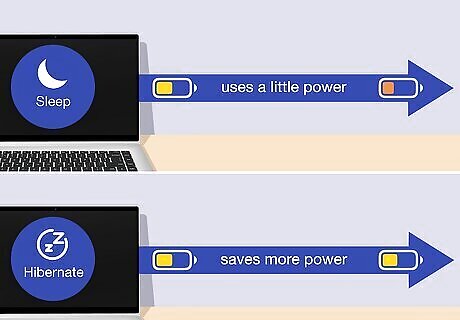
Power usage If you're concerned that your computer is using too much power, you might want to choose Hibernate when you walk away from your computer. Even though Sleep puts your computer into low power mode, it doesn't fully cut the computer off from power. Since Hibernate shuts the computer down completely, it saves more power than Sleep mode.
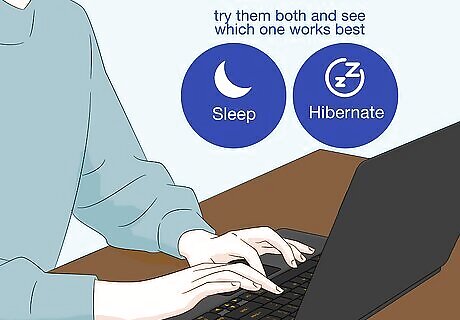
Personal preference At the end of the day, Sleep and Hibernate are pretty similar, and you may find that you have a preference for one over the other. Try them both out (if you have both options available to you) and see which one works best. If you have a fast computer that boots from an SSD (solid-state drive), the difference in boot-up time from Sleep versus Hibernate will likely be negligible.




















Comments
0 comment